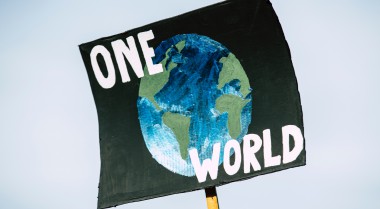
Reflecting on Building Peace in 2021: What we can Imagine, we can Create
We all know that violent conflict and war are persistent in the world. This sad reality has not changed in 2021. Think about the crimes against indigenous people in Mexico, the growing crisis in Eswatini and the increase of violence in Afghanistan for instance. Yet, only some of us experience it first hand. And only some of us are close enough to directly take a stand against it. GPPAC is home to an important group among them: Local peacebuilders. Trust us when we say that these local peacebuilders are empowered and emboldened by our network, that supports their efforts to build sustainable peace.
That is the reason why all year, our network of local peacebuilders has worked towards one goal - to make each other more powerful than conflict. Because ultimately it is local peacebuilders who are on the front lines of conflict, acting as first responders to rising tensions and emerging crises. They are the ones with critical local expertise and knowledge about what is really needed to build peace.
We are not there yet. But let me assure you that we have come far. Reflecting on our accomplishments in 2021, on behalf of our network, I want to extend three invitations to you. With these concrete invitations, I hope to generate enthusiasm and energy to truly champion locally-led peacebuilding in the year to come.
First, we invite you to join the growing chorus of those calling for a change in the financing for peacebuilding system to put local peacebuilders at the helm.
This year we took a close look at financing practices. We know what we are talking about when calling for a drastic shift in the financing for peacebuilding system. The current aid system is set up in a way that sees billions of dollars awarded every year to global intermediary organisations and entities with robust due diligence capacities in place. But these intermediary organisations are often not well-equipped to design and implement effective solutions for local problems, ultimately hindering sustainable impact - the opposite of what we all aim to achieve. Instead, we must advance innovative practices, such as our unique grantmaking approach, that allows for accessible and flexible financing for local peacebuilders working to make an impact on the ground.
Second, we invite you to embrace learning from each other to truly advance locally-rooted solutions for peace.
We know from experience that incredible things happen when local peacebuilders have space to meet to share their innovative local practices for building peace. In 2021, together with UNDP, we created this space to unpack what Infrastructures for Peace (I4Ps) actually mean and how they can be strengthened to advance peace, especially in times of crisis. The result of five consultations spanning the whole GPPAC network is brought together in an Issue Brief with clear recommendations to reimagine I4Ps based on the lived experiences of local peacebuilders across the globe. Together, we can put these recommendations into action!
Third, we invite you to meaningfully engage with local peacebuilders to develop effective, innovative and sustainable responses to climate change.
Local peacebuilders have long recognised that climate change poses a global threat to peace and development at all levels. For that reason, local peacebuilders represent an essential pool of local knowledge and expertise in addressing climate-related risks. It is time we make use of this unique pool as we, especially decision-makers at the higher governance level, otherwise run the risk of ineffective initiatives.
If we all take up these invitations, I am convinced that we can create the peaceful future we all envision. Will you join us in #BuildingPeaceTogether?
On behalf of the GPPAC network, I wish you a peaceful 2022!

